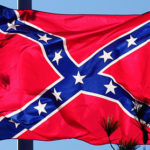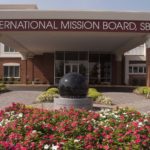LOUISVILLE, Ky. (BNG)—The Southern Baptist Convention’s International Mission Board has dropped a controversial ban on missionaries who use a “private prayer language.”
IMB trustees meeting May 12-13 in Louisville, Ky., approved streamlined guidelines for missionary appointment as part of a strategy being developed by new IMB President David Platt.
Platt, a former Alabama pastor elected as the IMB president last August, said the IMB aims to provide “multiple pathways” for service that include both traditional missionaries and people in the pews who work overseas.
‘Baptized member of a Southern Baptist Church’
The new policy requires that missionary candidates be “currently a baptized member of a Southern Baptist church” and demonstrate a “commitment to and identification with Southern Baptists.”
Doctrinal requirements are “expressed in the current Baptist Faith & Message statement of the Southern Baptist Convention.”
Gone are criteria narrower than the official SBC confession of faith last revised in 2000, which were put in place to ensure that people representing Southern Baptists overseas are planting churches that comport with Southern Baptist faith and practice.
In November 2005, IMB trustees adopted guidelines requiring missionary candidates to be baptized in a Southern Baptist church and banning the use of a “private prayer language” by missionaries on the field.
The action followed a 2003 white paper by a missions professor voicing concern about IMB cooperation with other “Great Commission Christians” around the globe and dropping a requirement that missionaries have a seminary degree.
Sign up for our weekly edition and get all our headlines in your inbox on Thursdays
Controversy
Keith Eitel, then at Southeastern Baptist Theological Seminary and now at Southwestern Baptist Theological Seminary, warned that then-IMB President Jerry Rankin’s strategy lacked safeguards against “unbiblical practices,” like women holding authority over men, creeping into new churches being started overseas.
Wade Burleson, at the time an IMB trustee from Oklahoma, criticized the policy change, adding his observations about political inner workings of the board of trustees, in a blog titled “Crusading Conservatives vs. Cooperating Conservatives: The War for the Future of the Southern Baptist Convention.”
The board responded by censuring Burleson for “slander” and “gossip,” which the pastor of Emmanuel Baptist Church in Enid, Okla., defended as “principled dissent.”
In August 2006, Dwight McKissic, the only African-American trustee of Southwestern Baptist Theological Seminary, said in seminary chapel that he disagreed with the ban on private prayer language. McKissic, pastor of Cornerstone Baptist Church in Arlington, said he personally had the experience while attending the school in Fort Worth as a student. The chapel service was webcast live but not archived with similar messages, prompting bloggers to accuse the seminary president of censorship.
Blog activity about denominational politics coincided with the surprise election of Frank Page as SBC president in 2006.
‘Simple, clear statement’
The simplified guideline is intended to “give Southern Baptists a simple, clear statement of qualifications that unifies not only the missionaries serving on one of those teams on the field, but unifies the IMB with the whole of the SBC,” Platt said.
“To be as clear as possible, this is no lowering of the bar for potential IMB missionaries,” Platt said in an IMB news release. “This is a raising of the bar in all the areas that matter most. … We will continue to train our missionaries and work as missionaries in ways that faithfully represent Southern Baptist churches and Southern Baptist conviction.”














We seek to connect God’s story and God’s people around the world. To learn more about God’s story, click here.
Send comments and feedback to Eric Black, our editor. For comments to be published, please specify “letter to the editor.” Maximum length for publication is 300 words.